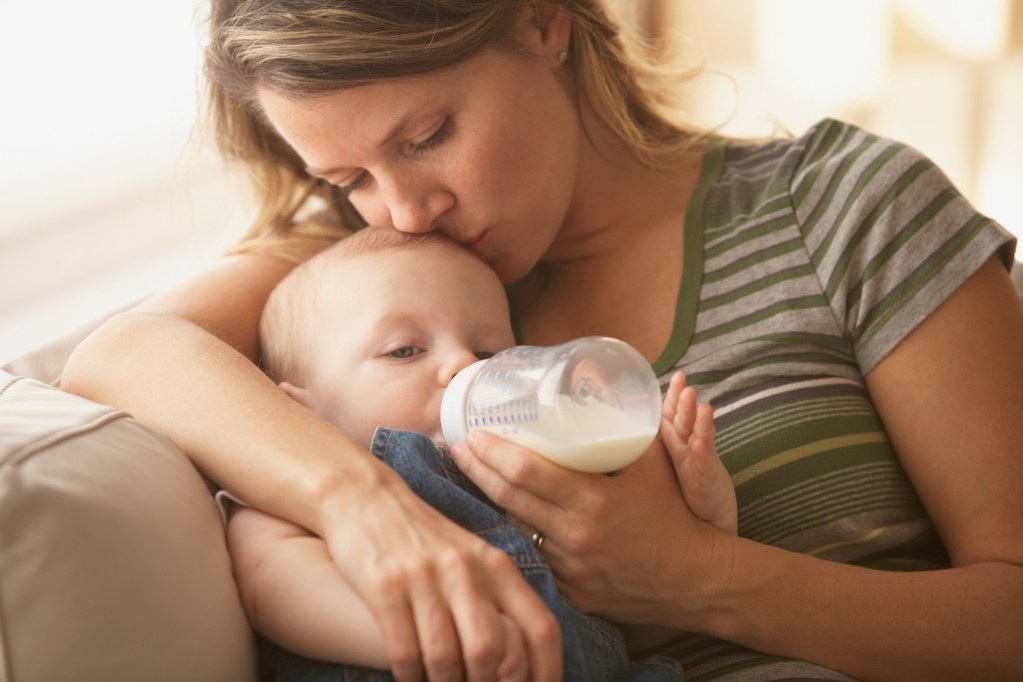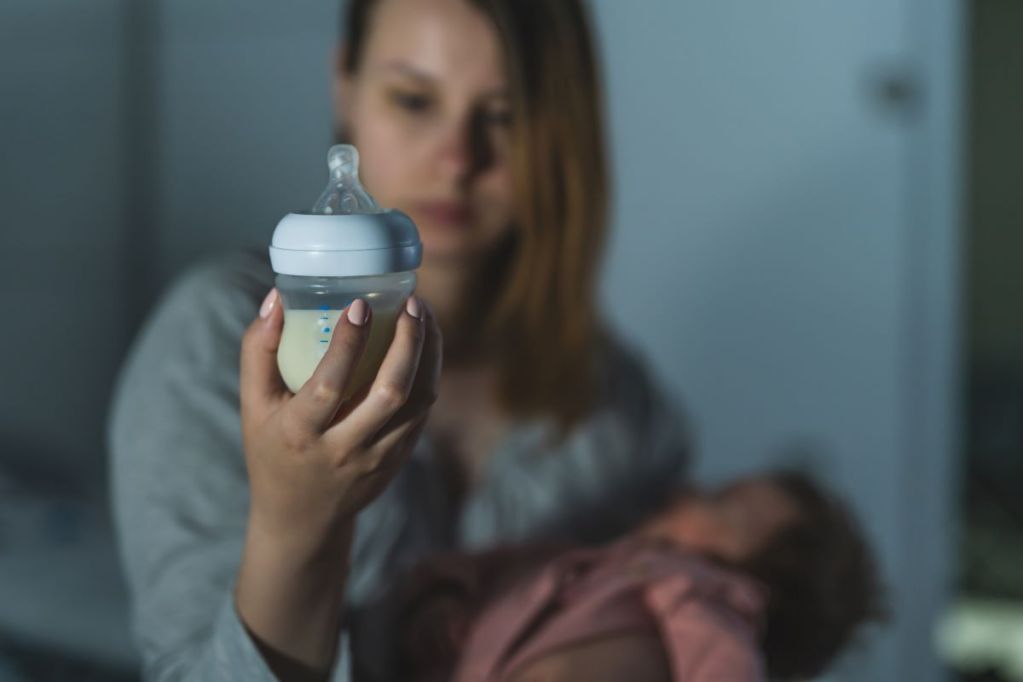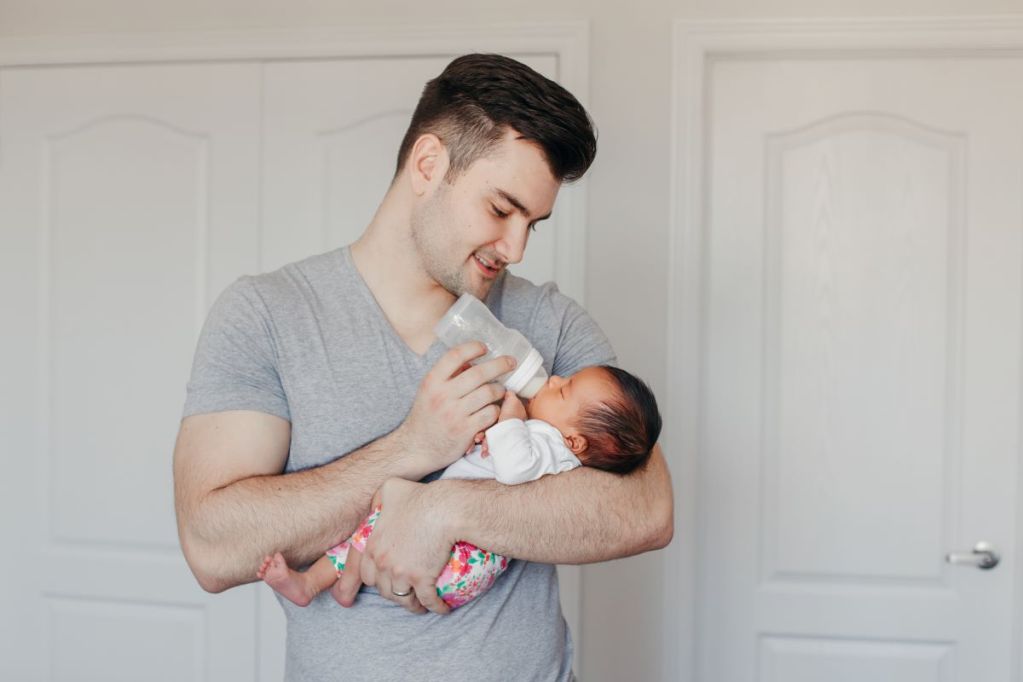
Everything seems to be expensive these days, including baby formula. It can be tempting to stock up on your favorite brand if it goes on sale, but you have to be mindful of the “use by” date on the packages. It can also feel like you’re dumping money down the drain if you prepare a bottle for your babe and they only drink a small amount before they fall asleep or have no interest in drinking more. Whether it’s prepared or not, here’s how long formula is good for and when to know if you should toss it or not.
Unprepared formula

It’s important to check the “use by” dates on all formulas you purchase and ensure you don’t use it after that date. Parents who supplement with formula may not use it a lot, so it’s important they know just how old their formula is. The CDC recommends using the formula within a month of opening the container.
We all know that as parents, you can get busy and may not always remember when you opened a container, so consider writing the date on the plastic lid with a marker to make it easier to keep track. Those of you who regularly formula feed are probably not worrying about having a container last longer than a month unless you keep extra supplies at places like grandparents’ houses or childcare providers. It’s important to keep track of use-by dates for all formula your baby drinks. You should also store the opened formula in a cool, dry place.
Prepared formula

It can be frustrating to prepare your baby’s formula only to have them fall asleep or seem completely uninterested in eating. So what do you do with the bottle you’ve just made or if you’re using prepared infant formula? The CDC advises using any prepared infant formula within 2 hours of getting the bottle ready and 1 hour from when your baby starts eating, the CDC advises.
If your baby doesn’t drink from the bottle within those two hours, you can put that bottle in the fridge for up to 24 hours. However, if your baby starts drinking from the bottle but doesn’t finish, you should throw out any formula that remains within an hour. Because your baby has already drank from that bottle, they could introduce bacteria to the bottle. If you’ve heated a bottle for your baby to drink, you should use that bottle within an hour of it being heated, because a warm environment is also conducive to having bacteria grow.
It can be confusing trying to keep track of everything when it comes to feeding your baby, but once they have a routine, it will be easier to minimize waste and know just how much your baby wants to eat. You can always start by preparing smaller amounts and adding more if you’re worried about wasting expensive formula. Just remember these guidelines are here to keep your baby happy and healthy.



